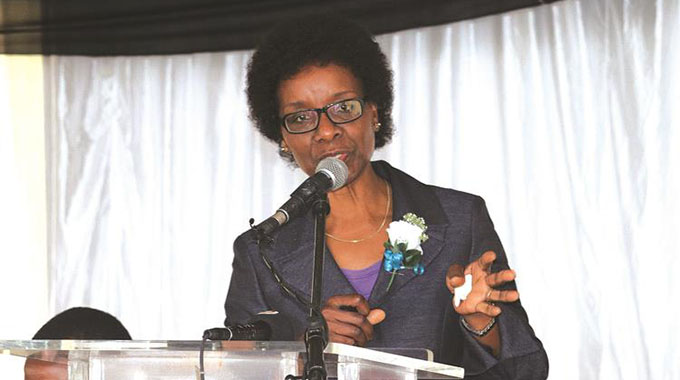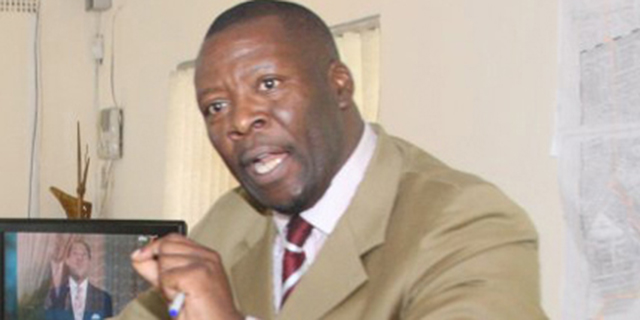Covid- 19: Why Children with Disabilities Need Specialised Masks

Muchaneta Chimuka Senior Writer
PEOPLE with disabilities (PWDs) have raised concern over the lack of proper Covid-19 prevention mechanisms, in particular a specialized face mask that enables them to breathe well.
Most PWDs, especially children with down syndrome are not using face masks at all putting them at high risk of getting Covid-19.
Zimbabwe Parents of Handicapped Children Association (ZAPHCA) Theresa Makwara said they need specialised masks for the children as the hand-made ones are not good for them.

parents with disabled children
“Children with disabilities especially those with down syndrome are at a greater risk of contracting Covid-19. Giving them face masks is risky because they can end-up eating them or even chocking to death. Most of the time the saliva will be flowing from their mouth uncontrollably hence the masks will always be wet each. This may cause the inhibition of the bacteria and virus in the cloth,” she said.
She revealed that there are more than 1 000 children with disabilities in greater Harare. These children, she said, are highly mobile as they are supposed to collect their medication at various health institutions, do physiotherapy sessions, health check-up among other things.
To make matters worse most of them come from vulnerable communities and they use public transport which is often associated with crowding.

children with disabilities
Mwakwara added that they are currently mobilising resources to assist their members.
“Our members are mostly poor communities who survive on begging and vending. Some are single mothers who were divorced after giving birth to children with disabilities. Their situation has been worsened by this pandemic since they are no longer able to carry out their vending businesses,” she added.
As a result, some children are defaulting their medications because of financial challenges.
“We need lasting solutions for the survival of these children and their parents during this Covid-19 period,” she said.
She applauded the support they received from a non-governmental organisation Misereor and the Chinese Embassy, which enabled them to buy food for the children.

children with disabilities after recieving food handouts
“We are quite grateful for the support we got from the Chinese Embassy through the Ambassador’s wife Madam Wang Wei and Misereor. We managed to buy food, buckets and sanitizers for our members but we still need more assistance.”
Makwara said currently, they were discouraging parents to go out with the children to avoid exposing them to the virus.
“We have formed support groups which assist in the collection of medication in order to reduce transport expenses and exposure,” she said.
She noted that cases of domestic violence are on the increase during this Covid-19 period and most of them are not being reported due to travel restrictions in the country.
“We are championing gender based violence programmes among our members because they are growing especially due to poverty. Some parents were locking up their children at home because of difficulties in moving around with them or due to fear of stigma and discrimination. Rejection of mothers who give birth to children with disabilities are rife hence we give information and counselling services to communities to curb such,” she explained.
Chinese Ambassador madam Wang Wei said they will continue assisting some vulnerable members of the community as China has strong relations with Zimbabwe going back in history.
ZAHCA patron, Miriam Kangai, said children with disabilities should not be forgotten in all initiatives to do with Covid-19 because they are a high risk demographic.
“Some of the children have multiple disabilities, they cannot talk, walk hence they are bed ridden for the whole of their lives. They need diapers, food, medication, wheelchairs among other things. Their parents need supportive mechanism such that they do not lose hope in looking after them,” she said.
Elizabeth Chidi (56) who is into handmade face mask business said looking after children with disabilities needs dedication and support.
“My child needs support. He is now fully grown up but we have to bath him as he is wheelchair bound. He is not able to use the face mask because already he faces difficulties in breathing. I pray that if we happen to get the specialised masks we will be able to protect him from Covid-19,” she said.
Another parent of a child with disabilities Ndipa Chinogurei (64) of Dema Rural said they are struggling to buy soap for hand washing and water is scarce in their area.
Deaf Zimbabwe Trust Programmes Manager Paidamoyo Chimhini said people with disabilities require the appropriate information and media that helps in conveying Covid-19 information.
This includes information in braille, sign language, local languages newspapers and radio among others.
Josphine Tanda the Deputy Director for Special Needs Education in the Ministry of Primary and Secondary Education said sign language is very important and everyone should learn its basic parts in order to break the communication gap.
“We have developed the infant sign language syllabus in line with the competence based curriculum and everyone should be eager to know its basics so that we can communicate easily with those who cannot speak rather than letting them speak among themselves. If things remain that way we cannot understand their issues,” she said.
Rejoice Timire the disability Senator said Section 83 of the Constitution (disability rights) should be recognised in all spheres. As such, the rights of the disabled should not be a forgotten during this Covid-19 period.
The Convention on the Rights of Persons with Disabilities and its Optional Protocol was adopted on December 13, 2006 at the United Nations Headquarters in New York, and was opened for signature on 30 March 2007.
There were 82 signatories to the Convention, 44 signatories to the Optional Protocol, and 1 ratification of the Convention. The Convention entered into force on May 3, 2008.
The Convention follows decades of work by the United Nations to change attitudes and approaches to persons with disabilities. It takes to a new height the movement from viewing persons with disabilities as “objects” of charity, medical treatment and social protection towards viewing persons with disabilities as “subjects” with rights, who are capable of claiming those rights and making decisions for their lives based on their free and informed consent as well as being active members of society.
The Convention is intended as a human rights instrument with an explicit, social development dimension. It adopts a broad categorization of persons with disabilities and reaffirms that all persons with all types of disabilities must enjoy all human rights and fundamental freedoms.










Comments